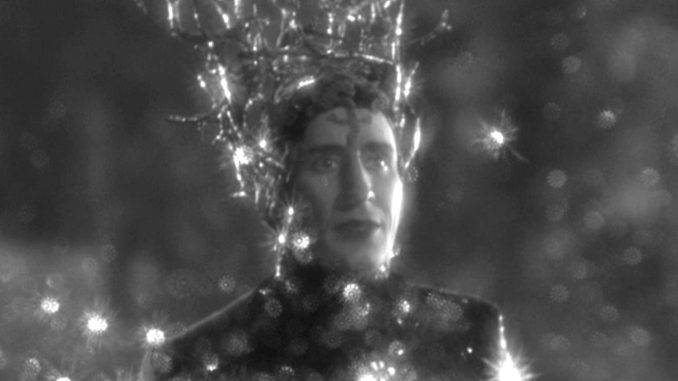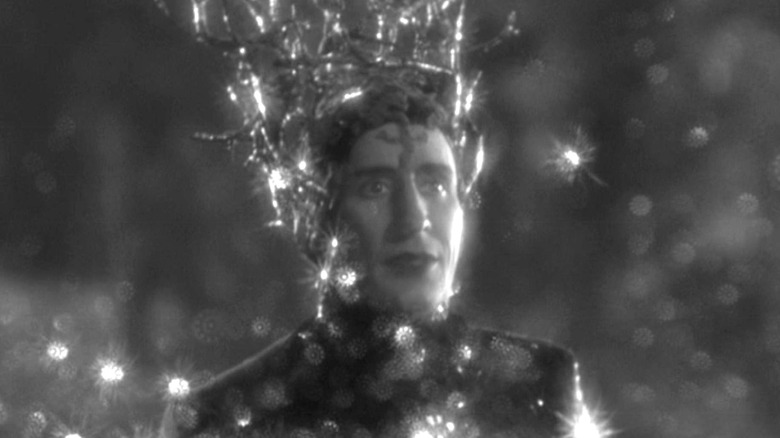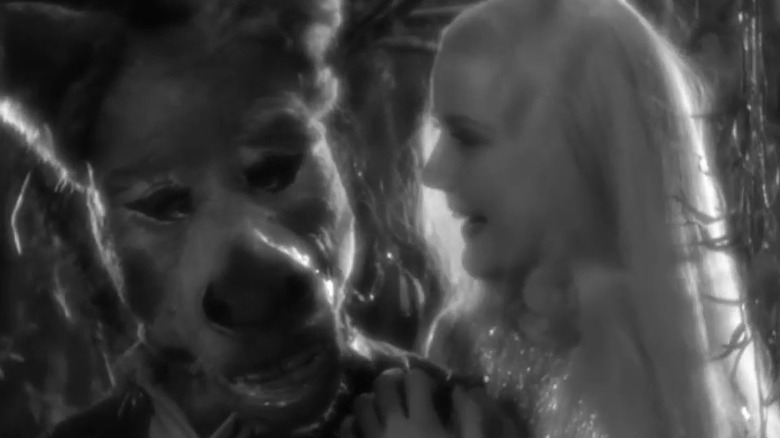
We may receive a commission on purchases made from links.
In 1934, the inimitable Bette Davis appeared in a film adaptation of W. Somerset Maugham’s “Of Human Bondage,” a semi-autobiographical novel about the unfortunate loves of one Philip Carey. The 1934 film was directed by the prolific John Cromwell and starred Leslie Howard as Philip. Davis played Mildred Rogers, a tearoom waitress that Philip falls in love with, but who treats him with the utmost cruelty. It was a great role for Davis, who was only 26 at the time.
An article in Collider points out that Davis was under contract with Warner Bros. at the time, but really, really wanted to play the part of Mildred, knowing that it was a juicy role. “Of Human Bondage” was being produced by RKO, and Davis would need WB’s Jack Warner to loan her talents to RKO to work on the project. Davis recalled in a TCM interview how much she pleaded with Warner, and how he eventually, reluctantly allowed her to take the part. “Of Human Bondage” ended up flopping at the box office, but Davis received a lot of acclaim. At the time, there she garnered a lot of Oscar buzz.
But Davis wasn’t even nominated that year. According to the book “Mother Goddam: The Story of the Career of Bette Davis,” many Oscar voters were incensed at the snub, and there was a vague buzz about the possibility of voters writing in Davis’ name in protest. In a surprise twist, the Academy listened to the vague buzz, and, at the last minute, announced that write-in votes would be allowed for the 1934 voting session. Davis didn’t win, but she did do well with voters; Vanity Fair once pointed out that Davis came in third, after winners Claudette Colbert and Norma Shearer.
The write-in rule was held for the following year as well, perhaps as an experiment by the Academy to see if a write-in vote could actually get traction. When cinematographer Hal Mohr won a write-in vote for his work on “A Midsummer Night’s Dream,” the Academy put the kibosh on the write-in votes thing almost immediately.
Hal Mohr is the onlty person to have won an Oscar by write-in vote
Bette Davis’ Oscar snub might be compared to the instance in 2008 when Christopher Nolan’s “The Dark Knight” wasn’t nominated for Best Picture at the Academy Awards (despite Heath Ledger posthumously winning Best Supporting Actor for his role as the Joker), inspiring an uproar among pundits. Many claimed the Academy was out of touch with a mass audience, and that well-crafted fantasy films, merrily making millions, were still being eschewed by awards bodies merely for their genre. The following year, the Academy responded to these criticisms by expanding the Best Picture category from five to 10 nominees, hoping to incorporate more blockbusters and fantasy films.
The 1934 incident was merely an earlier case of the Academy kowtowing to public pressure. If voters were indeed planning to write in Davis’ name as the rumor mill suggested, then the Academy figured they may as well allow it. When Davis didn’t win, though, the Academy likely breathed a sigh of relief; they wouldn’t have to note that their nominations were anything less than wholly legitimate. As a show of good faith, the Academy retained the rule for the films of 1935.
But then Hal Mohr won in 1935, throwing the entire system into doubt. The nominees for Best Cinematographer that year included Ray June for “Barbary Coast,” Victor Milner for “The Crusades,” and the legendary Gregg Toland for “Les Misérables.” While those three men did exemplary jobs in their respective films, one can see why the voters wanted Mohr to win instead. His work on “A Midsummer Night’s Dream” is nothing less than magical. He famously smeared Vaseline on his lenses to capture the soft-focus world of William Shakespeare’s fairies, and he painted the trees bright orange to reflect more light. His entire process can be read in a 2009 academic paper written by Scott Macqueen.
Mohr is the only person to have won a competitive Oscar by write-in vote. The Academy ended the write-in rule immediately after.
The Academy only kowtowed to public pressure about write-in votes for two years
An article in Vulture pointed out that Davis winning Best Actress that year was unlikely, as “Of Human Bondage” came out the same year as the juggernaut “It Happened One Night,” which took home Best Picture, Best Director, Best Screenplay, Best Actor, and Best Actress.
Vulture, however, also found an old Variety article wherein Warner Bros. campaigned openly for write-in balloting the following year, encouraging everyone to vote with their hearts, and not what the Academy had nominated. They called “for write-ins in all classes where one or more of their candidates had not been nominated through regular channels for final balloting.” It might have worked, as Michael Curtiz was included on the ballot for directing WB’s “Captain Blood” and Paul Muni was a write-in nominee for his performance in “Black Fury.” Neither Curtiz nor Muni won … but Hal Mohr did. “A Midsummer Night’s Dream” was also a WB production.
There are two minds at work here. One can see the write-in campaigns as a way to bring justice to an already-weighted system. One can also see it, however, as a chance for well-moneyed studios to launch Oscar campaigns for whoever they want, regardless of nominations, happily putting their thumbs on the scale. A write-in campaign with studio money behind it would allow studios to dictate the Academy Awards. One might say that that’s already the case, but at least now there are parameters. The write-in rules were ceased in 1935 and haven’t been entertained ever since.
Davis would win her first Oscar in 1936 for “Dangerous,” and Mohr would win his second in 1940 for “The Phantom of the Opera.” Muni, meanwhile, won for 1936’s “The Story of Louis Pasteur,” and Curtiz won for 1942’s “Casablanca,” so everything kind of evened out on the end.




Leave a Reply